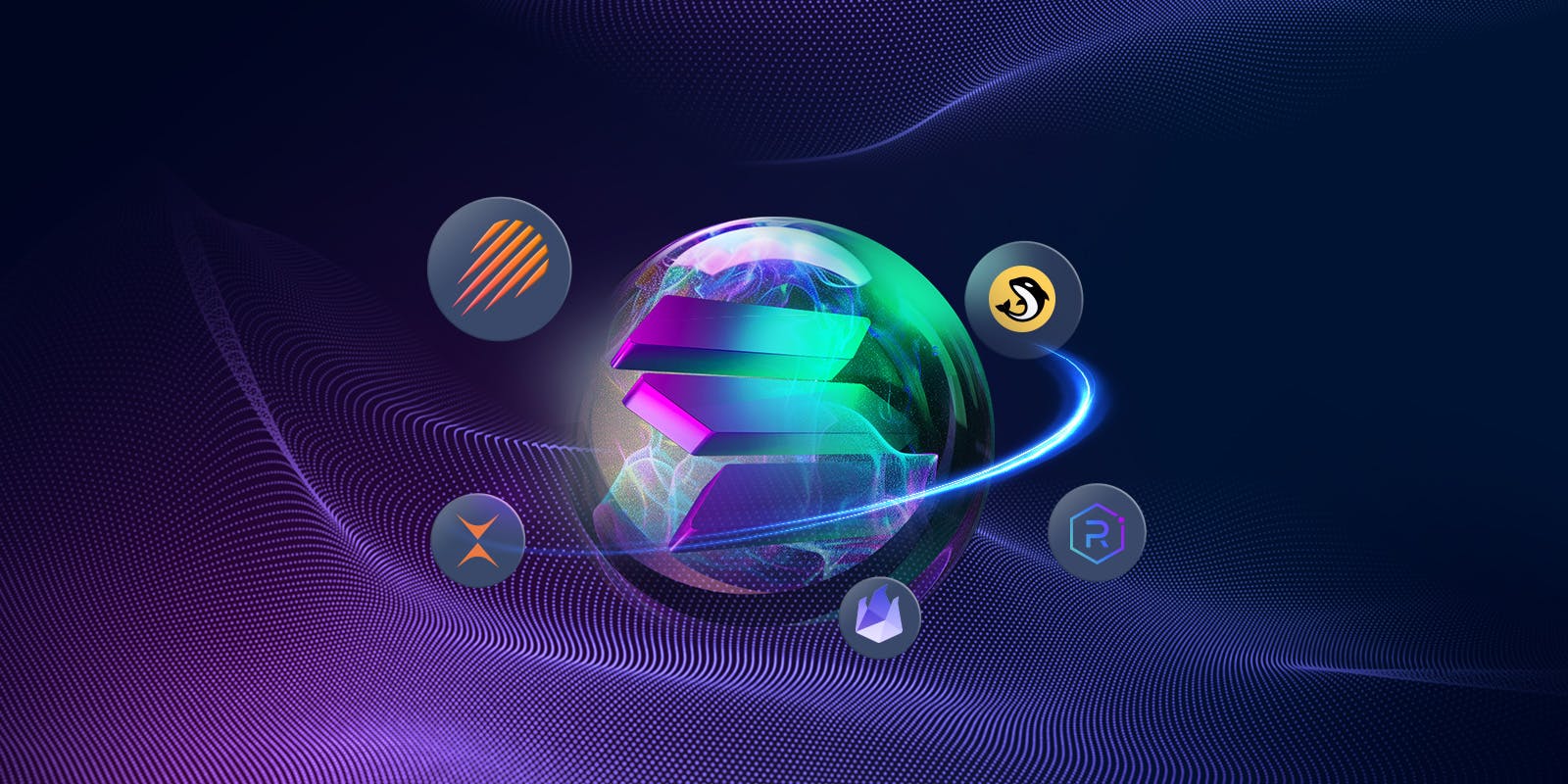The Most Popular DEXs to Exchange and Swap on Solana
Solana, one of the fastest-growing blockchains during its peak in late 2023 and early 2024, continues its rapid ascent and has established itself among the top blockchains by market cap. The Solana token ($SOL) experienced a significant surge, at one point skyrocketing nearly 1,000% between mid-2023 and mid-2024, often outperforming major cryptocurrencies like BTC, ETH, and BNB during that period. In this review, we explore some of the leading and most popular decentralised exchanges contributing to Solana's vibrant DeFi ecosystem.
1. Raydium DEX
Raydium is a major Solana DEX and a key liquidity provider within the ecosystem. It stands out as one of the earliest automated market makers (AMMs) built on Solana. Historically, it uniquely integrated with the Serum central limit order book (CLOB); however, Serum is now defunct following the collapse of FTX. Raydium continues to operate as a significant AMM platform offering various liquidity pool types and playing a crucial role in integrating new projects into the Solana ecosystem.
Key features include:
- Swap and exchange Solana-based tokens.
- Provide liquidity and earn a yield on your Solana tokens.
- Stake the DEX’s native token, RAY, to earn a yield on your RAY tokens .
2. Orca DEX
Orca is another leading Solana DEX, frequently ranking among the top platforms by trading volume. Known for its user-friendly interface, Orca makes it easy to exchange or swap Solana-based tokens on-chain with the minimal transaction fees and low latency characteristic of the Solana network, offering a smoother experience than many DEXs on Ethereum.
Key features include:
- Swap and exchange Solana-based tokens.
- Provide liquidity (including concentrated liquidity via 'Whirlpools') and earn a yield.
- Adopt an Orcanaut NFT to join their community.
- A small fee from trades supports environmental protection through the Orca Climate Fund.
3. Meteora DEX
Meteora is a prominent Solana DEX focused on providing sustainable and efficient liquidity infrastructure. It is particularly known for its innovative Dynamic Liquidity Market Maker (DLMM) pools, which allow liquidity providers to concentrate liquidity in specific price ranges and earn dynamic fees based on market volatility. While primarily a DEX providing liquidity for swaps, Meteora also incorporates Dynamic Vaults; this feature automatically allocates idle capital from within certain Meteora liquidity pools into integrated Solana lending protocols to generate additional yield for liquidity providers.
Key features include:
- DLMM: Access to dynamic fees and precise liquidity concentration in real-time.
- Dynamic Pools: Provide liquidity and earn a yield from trading fees.
- Dynamic Vaults: A feature optimizing yield on idle capital within pools via lending integrations.
- M3M3: A a staking and fee-reward mechanism for meme coins.
4. Phoenix DEX
Phoenix is a significant Solana DEX known for its fast, fully on-chain central limit order book (CLOB). This allows users to place limit orders with exceptional speed, efficiency, and transparency directly on the blockchain. Phoenix prioritises cost-effective trading, often featuring very low protocol fees per trade alongside Solana's minimal network fees.
Key features include:
- Swap and exchange Solana-based tokens via an on-chain order book.
- Funds are immediately available for withdrawal once orders are filled, thanks to Phoenix's 'crankless' design.
5. Lifinity DEX
Lifinity is another notable DEX on Solana, employing a unique proactive market-making algorithm powered by oracles to manage its liquidity pools actively. By setting prices based on external market data rather than just relying on pool balances, Lifinity aims to reduce impermanent loss for its liquidity providers, a common challenge in traditional AMMs.
Key features include:
- Swap and exchange Solana-based tokens.
- Proactive market-making aiming to reduce impermanent loss.
- Uses concentrated liquidity for potentially smoother trades.
Other notable Solana DEXs/Aggregators
Jupiter
Jupiter is the leading aggregator on Solana, routing trades across multiple DEXs, just like the SwissBorg app does with several centralized and decentralized exchanges (including Raydium, Orca, Meteora, Phoenix, etc.) to provide users with the best possible swap prices.
Zeta Markets
Zeta Markets is a decentralised derivatives exchange focused on options and perpetual futures.
If you're interested comparing Solana decentralised exchanged more in depth, here are some of our DEX comparisons:
All in all
These leading DEXs on Solana offer a range of features and benefits, making Solana a robust and dynamic ecosystem for decentralised finance, trading, and investment. The Solana blockchain powers a wide variety of activities that go beyond exchanges, including: DePIN projects, games, meme coins, and even digital identity solutions like Solana ID ($SOLID).
At SwissBorg, we are proud to leverage these DEXs with our SwissBorg MEX, a multichain exchange aggregator that integrates seamlessly with Solana's high-performance infrastructure. Solana’s exceptional throughput, low transaction costs, and rapid finality, combined with unmatched security and native USDC support, provide an ideal foundation for our platform.
